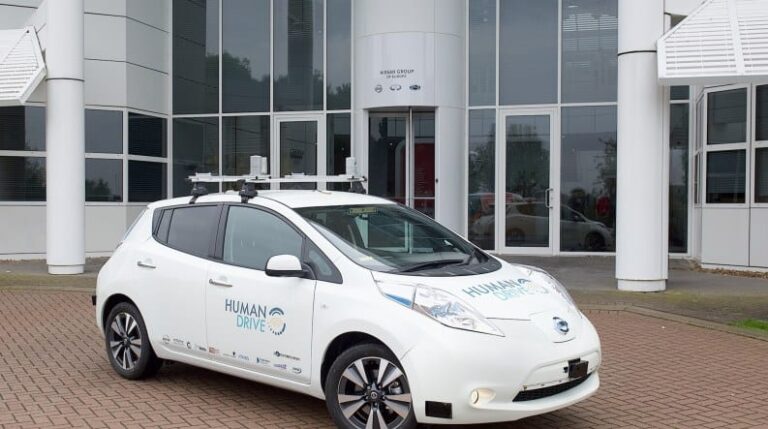Transport Systems Catapult are getting involved with an Autonomous Vehicle project. The project is to last 20 months and is led by Nissan’s European Technical Centre, as a part of Renault-Nissan Alliance research activities. It will entail a ‘HumanDrive’ project vehicle making a complex journey across the UK in live traffic and in different environmental conditions.
Testing will offer a variety of unique driving scenarios and will take place a country roads, motorways, A-roads, high speed roundabouts. The journeys will be made by the power of the autonomous vehicles alone, without any human input and the car will be expected to imitate a natural human driving style in order to provide an enhanced experience for the occupants.
“This pioneering project will considerably enhance the experience of drivers who use future autonomous vehicles,” explains Mark Westwood, Transport Systems Catapult chief technology officer. “We’ve only just scratched the surface in terms of the capability of machine learning and AI in driving.
“The HumanDrive project further reinforces the UK’s commitment to be at the forefront of future mobility, and as a world leader in R&D. We are delighted to be working with world-class partners on this project to ensure autonomous vehicle technology provides users with the utmost comfort and control possible.”
HumanDrive funded both by government and industry. The government is providing £100 million via its Intelligent Mobility fund. This money is then administered by administered by the Centre for Connected and Autonomous Vehicles (CCAV) and delivered by the UK’s innovation agency, Innovate UK. Other project partners include Hitachi, Cranfield University, University of Leeds, HORIBA MIRA, Atkins, Aimsun Ltd, SBD Automotive and Highways England.
“The HumanDrive project is a great example of the dynamic collaboration of businesses and organisations supported by the Intelligent Mobility fund,” says Paul Gadd, head of automotive at Innovate UK. “This is a significant next step in the testing and development of driverless car technologies and highlights how the UK is at the forefront of automotive innovation,” he adds.
Business and energy secretary, Greg Clark supports this when he says that autonomous vehicles and low-carbon “vehicles are the future and they are going to drive forward a global revolution in mobility,” adding that the UK has “the opportunity to be at the forefront of this change”, noting that this a change which “we cannot afford to miss.”





